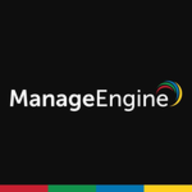

Salesforce Service Cloud and ManageEngine ServiceDesk Plus are leading products in the customer service and IT management sectors. Based on feature set, Salesforce Service Cloud appears to have the upper hand due to its comprehensive integration capabilities and ease of use.
Features: Salesforce Service Cloud offers robust case management, seamless integration with Salesforce data, and customizable consoles. It supports diverse communication channels and enhances productivity with tools like the Service Console and CTI integration. ManageEngine ServiceDesk Plus provides ITIL-compliant features, including incident and request management, a knowledge base, and efficient support ticket auto-routing. It integrates well with asset management tools and is cost-effective.
Room for Improvement: Salesforce Service Cloud users seek improvements in mobile applications, email integration with Outlook, reporting, and user interface. Pricing and knowledge management also require enhancement. ManageEngine ServiceDesk Plus could improve reporting, user interface customization, and backend connectivity. Users desire better automation, platform integration, and request management processes.
Ease of Deployment and Customer Service: Salesforce Service Cloud offers Public Cloud deployment, providing scalability and flexibility, with strong customer support through its Success Community, albeit with some challenges in first-line support. ManageEngine ServiceDesk Plus offers both On-premises and Public Cloud options, appreciated for user-friendly deployment and reasonable customer support, despite some responsiveness challenges.
Pricing and ROI: Salesforce Service Cloud is seen as expensive, justified by extensive features and strong ROI through efficiency gains. ManageEngine ServiceDesk Plus, noted for cost-effectiveness, is favored by small to medium businesses with operational cost savings and enhanced asset management reflecting ROI.
ManageEngine has been particularly beneficial for small and medium-sized businesses in terms of value for money since they receive similar service at a lower cost compared to ServiceNow.
Salesforce Service Cloud requires significant maintenance effort to see ROI.
Their response time could be quicker.
The ManageEngine technical support team deserves a rating of ten out of ten because we receive up-to-date support.
They respond to emails based on time zone considerations.
Unless you have premium support, assistance is restricted.
Salesforce directly does not give you the support, and it is through the partner that you have to go, leading to some time delays.
It is trickier to expand across endpoints with Help Desk.
Scaling ManageEngine ServiceDesk Plus is easy, and I would rate its scalability as nine out of ten.
The tool is suitable for medium to large-scale operations and can be used effectively by mid-size companies.
Salesforce Service Cloud is the most advanced in scalability, rating around nine to ten.
Nobody can compete with Salesforce Service Cloud's scalability.
We have not experienced any significant issues.
We have not faced any stability issues or challenges with this tool.
We rarely encounter stability issues with Salesforce Service Cloud, although when they occur, they cause significant disruption.
It would be beneficial to have an option to assign approvals to a user group or a variable.
There could be improvements in licensing flexibility, like the ability to use a single license for multiple users simultaneously.
They might consider creating a bundled ERP solution for all these tools where purchasing one license would enable access to all functionalities.
Salesforce Service Cloud should focus on simplification.
Configuring Flows in Salesforce Service Cloud is very difficult.
The pricing of Salesforce Service Cloud is expensive compared to other solutions like our current SAP CRM, which is much cheaper.
The cost of ManageEngine is more affordable, making it viable for small to medium-sized businesses.
It is not as expensive as ServiceNow, which has a very high cost.
The costing for ManageEngine ServiceDesk Plus is very flexible and is considered low-priced.
The approximate licensing costs for Salesforce Service Cloud are around three hundred dollars a year per user.
Salesforce Service Cloud is expensive.
It provides a simpler and more intuitive interface for creating semi-automated use cases and managing problem solutions.
The automation capabilities are good, with the workflow being an integral part of it.
All necessary features for these activities are included, such as incident management, change management, and problem management.
Salesforce Service Cloud improved our organization with its mobile capabilities.
Salesforce Service Cloud offers pre-built packages that are best in class.
Usability is one of the strongest characteristics of Salesforce Service Cloud.
| Product | Market Share (%) |
|---|---|
| ManageEngine ServiceDesk Plus | 5.1% |
| Salesforce Service Cloud | 2.3% |
| Other | 92.6% |


| Company Size | Count |
|---|---|
| Small Business | 31 |
| Midsize Enterprise | 24 |
| Large Enterprise | 19 |
| Company Size | Count |
|---|---|
| Small Business | 19 |
| Midsize Enterprise | 13 |
| Large Enterprise | 24 |
ManageEngine ServiceDesk Plus (MSP) is a comprehensive help desk tool that has built-in asset and project management. MSP can be deployed in the cloud or on premises. The solution enables its users to track configuration changes, map relationships, and view graphical displays of data for more informed decision making.
The two main focus points of MSP are IT request tracking and asset management. MSP’s integrated centralized management console enables technicians and system administrators to efficiently resolve complex issues and keep track of their organization’s needs and ensure constant availability.
With MSP's automation of multiple service desk processes, you can easily save time by automating repetitive and simple tasks such as task assignment, notifications, and categorizations. The automation of multiple processes helps reduce errors and lower costs while ensuring a fast turnaround of ticket handling processes.
ManageEngine ServiceDesk Plus Features and Benefits
MSP has a wide variety of features to help you optimize your help desk management:
Reviews from Real Users
MSP stands out among its competitors for a number of reasons. Two major ones are its comprehensive workflow management toolset and the flexibility it offers its users.
Mykola S., head of global IT delivery at Acino Pharma AG, writes, “CMDB as a baseline, incident management, service request management, and license management are valuable features. It offers really interesting features for complete use in an enterprise. You have one platform, and you could set up different service functions for HR, engineering, or another team in the same platform.
Service Cloud is fully customizable support and help desk that provide faster, smarter service that will increase loyalty, retention, and satisfaction. From call-center software to self-service portals, our service solutions enhance your customer service with more responsive, more intuitive, more flexible support that anticipates customer needs.
We monitor all Help Desk Software reviews to prevent fraudulent reviews and keep review quality high. We do not post reviews by company employees or direct competitors. We validate each review for authenticity via cross-reference with LinkedIn, and personal follow-up with the reviewer when necessary.